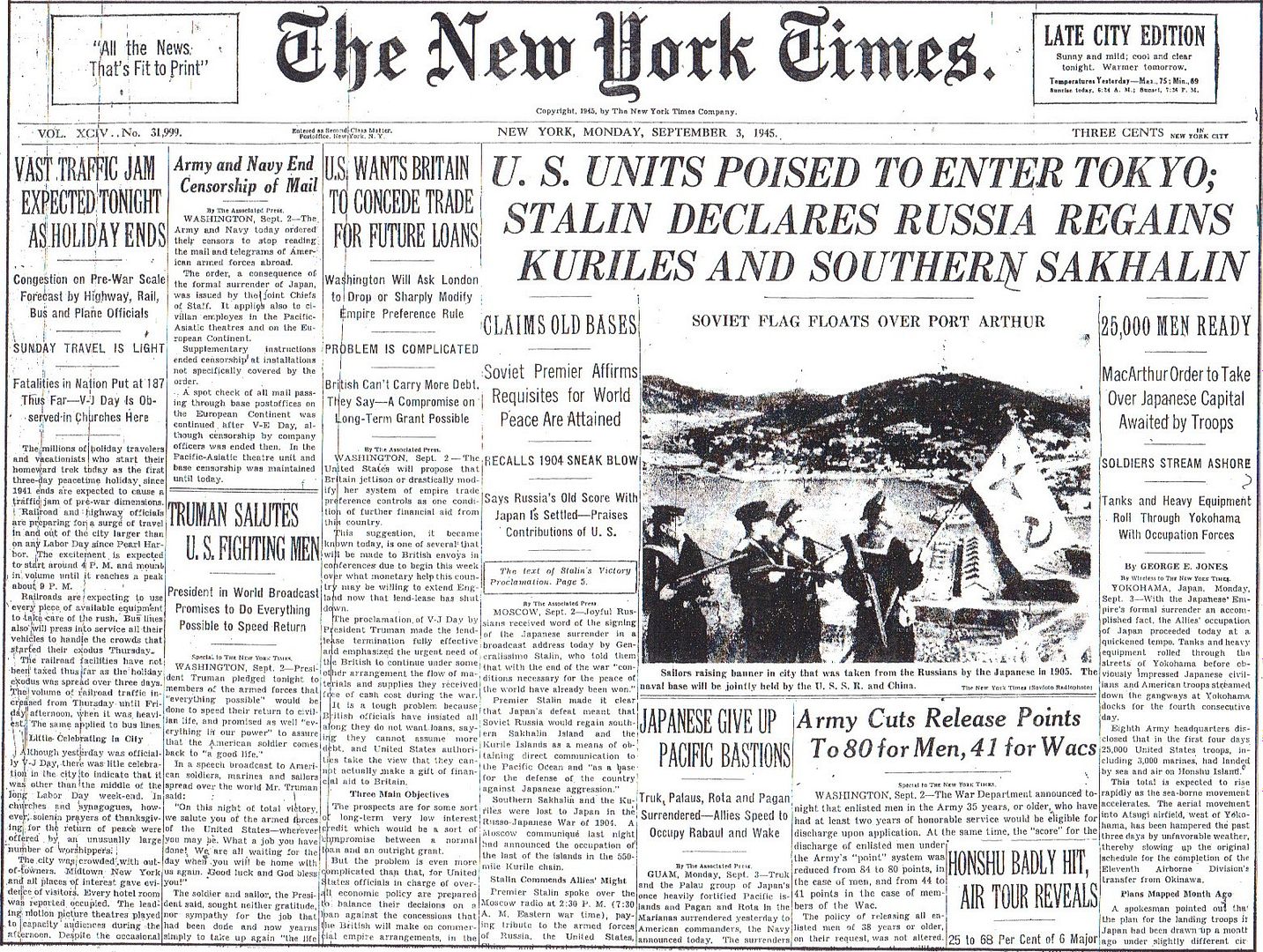
Posted on 09/03/2015 4:59:55 AM PDT by Homer_J_Simpson

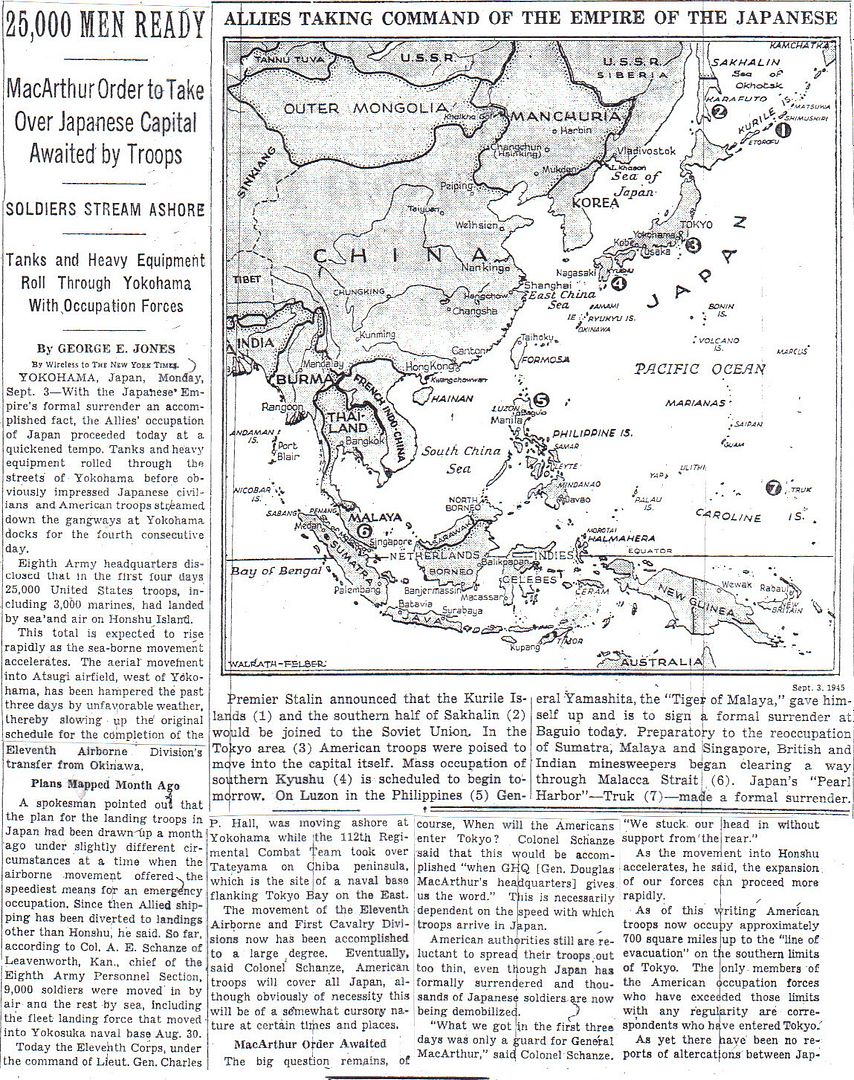
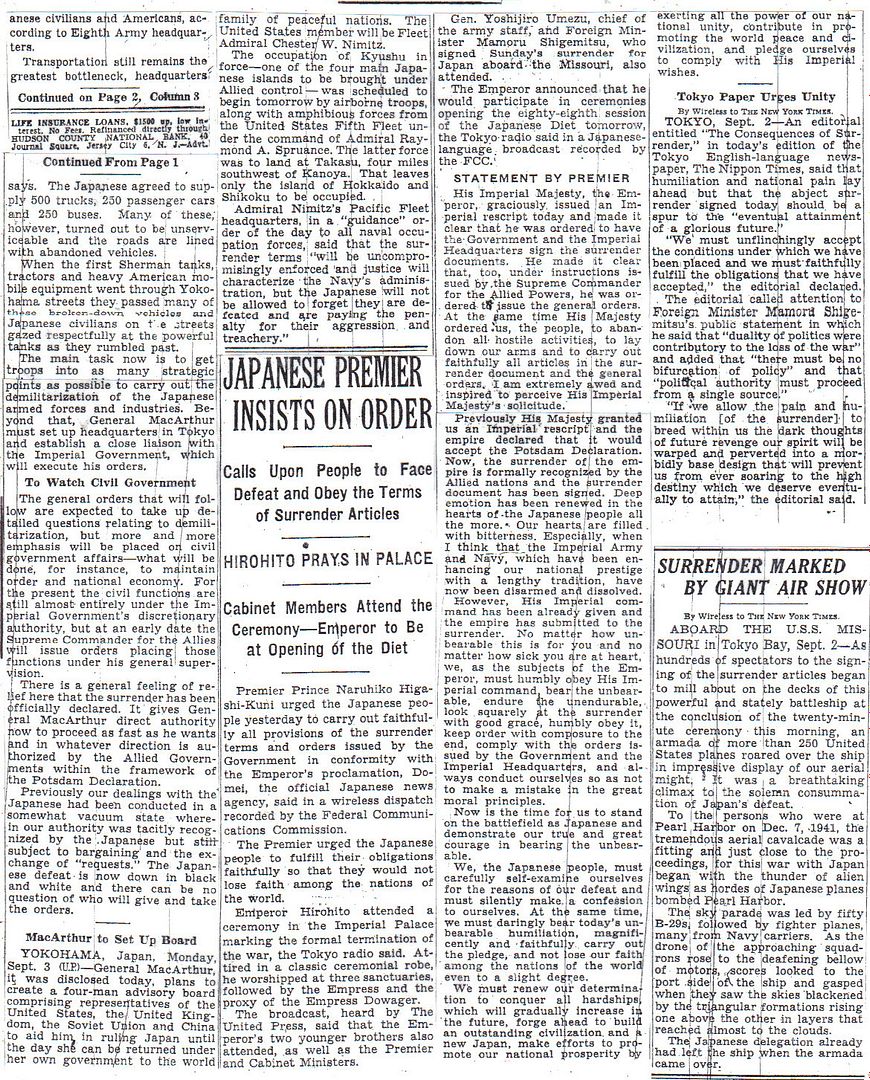
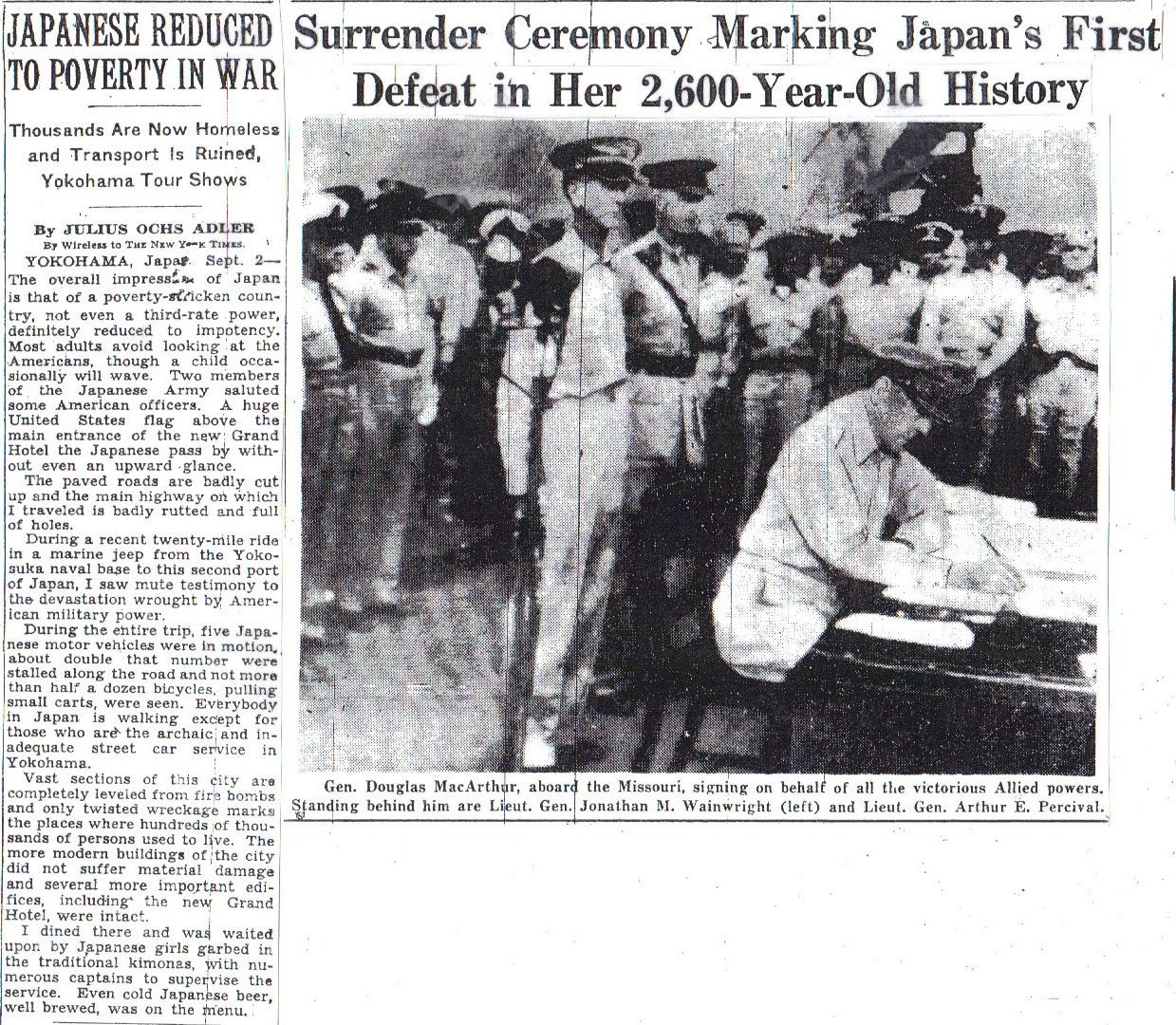
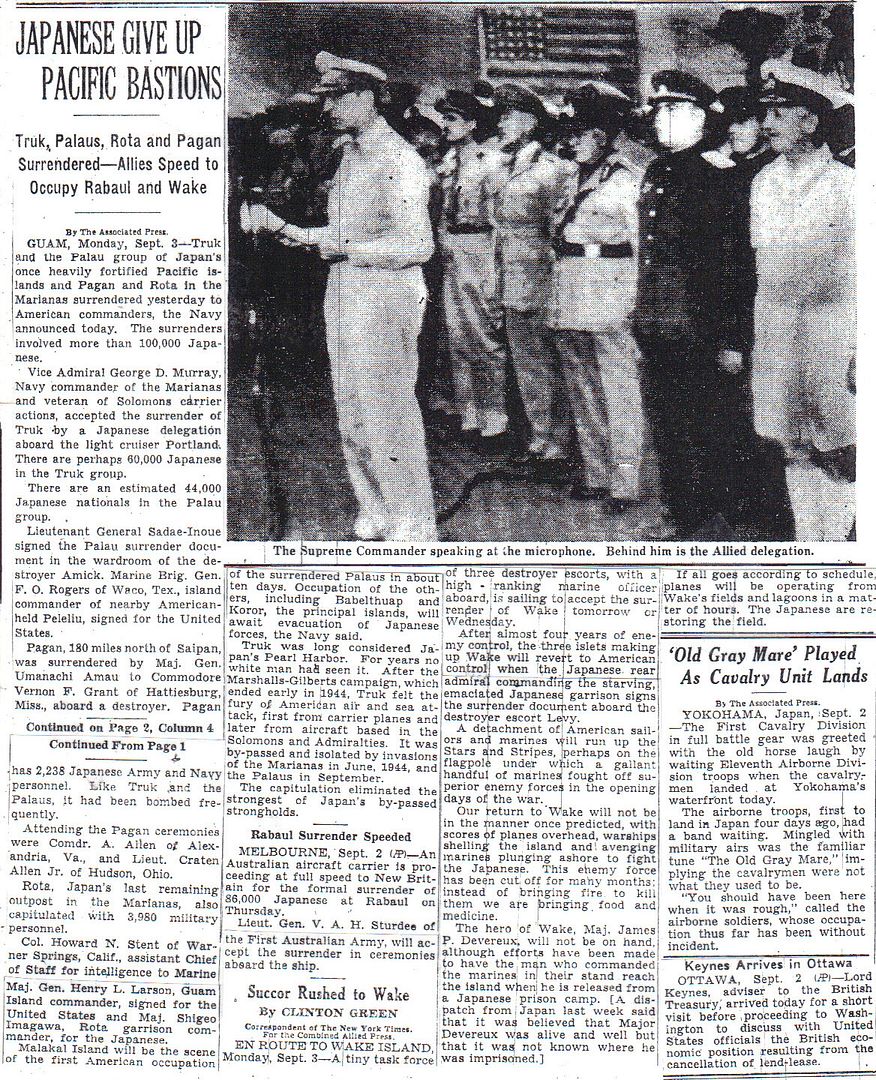
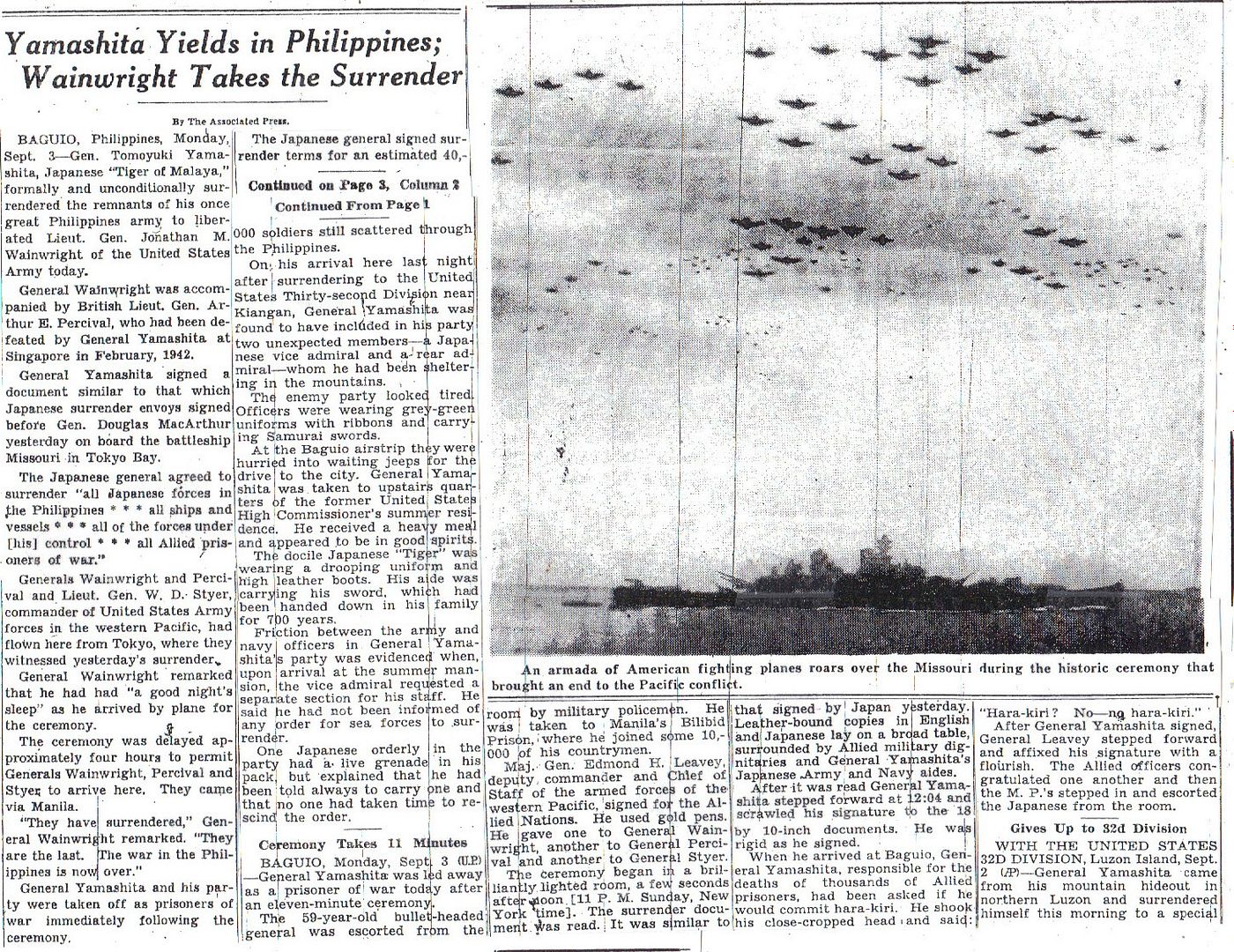
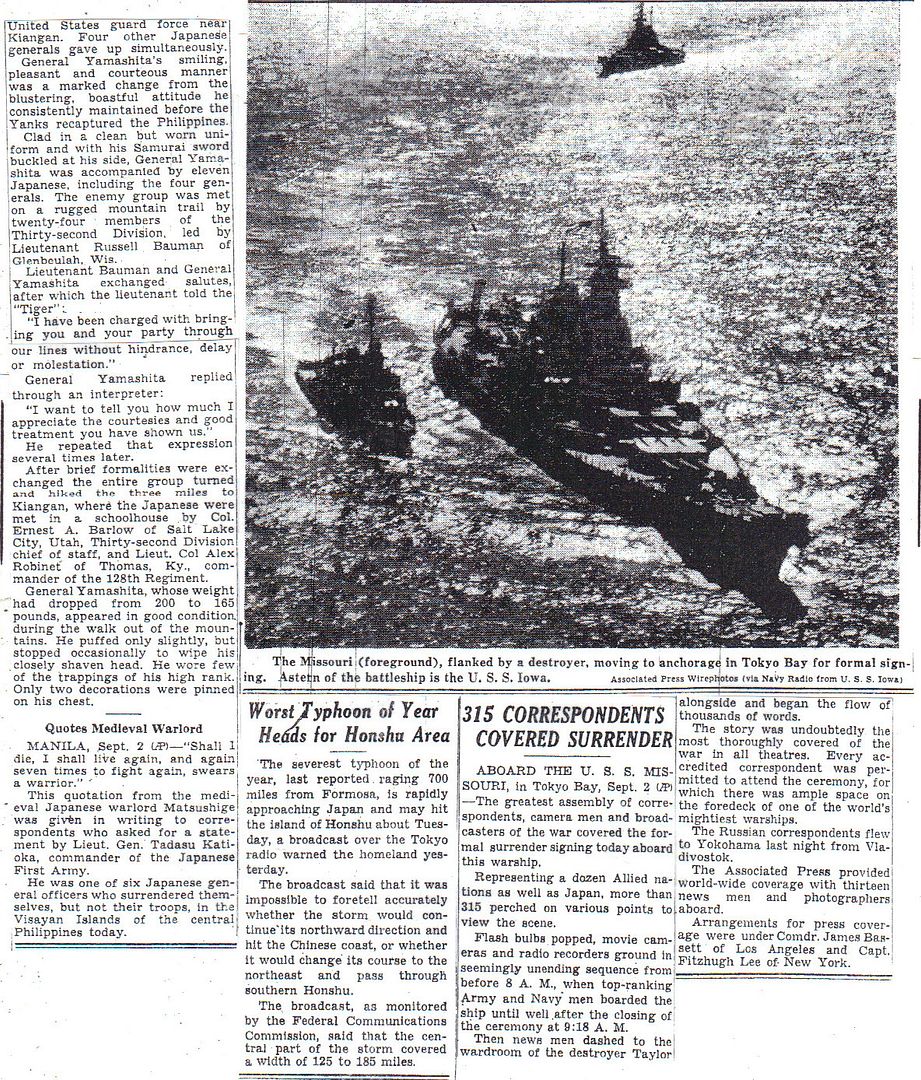
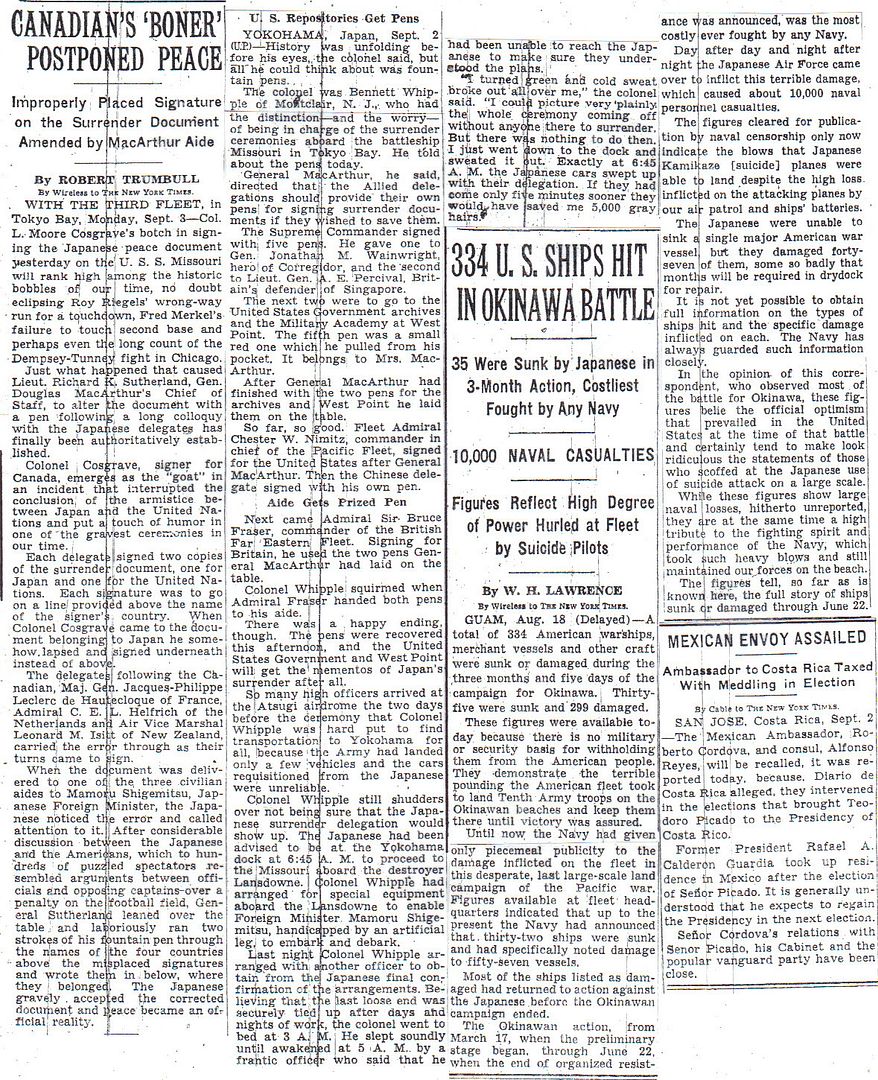
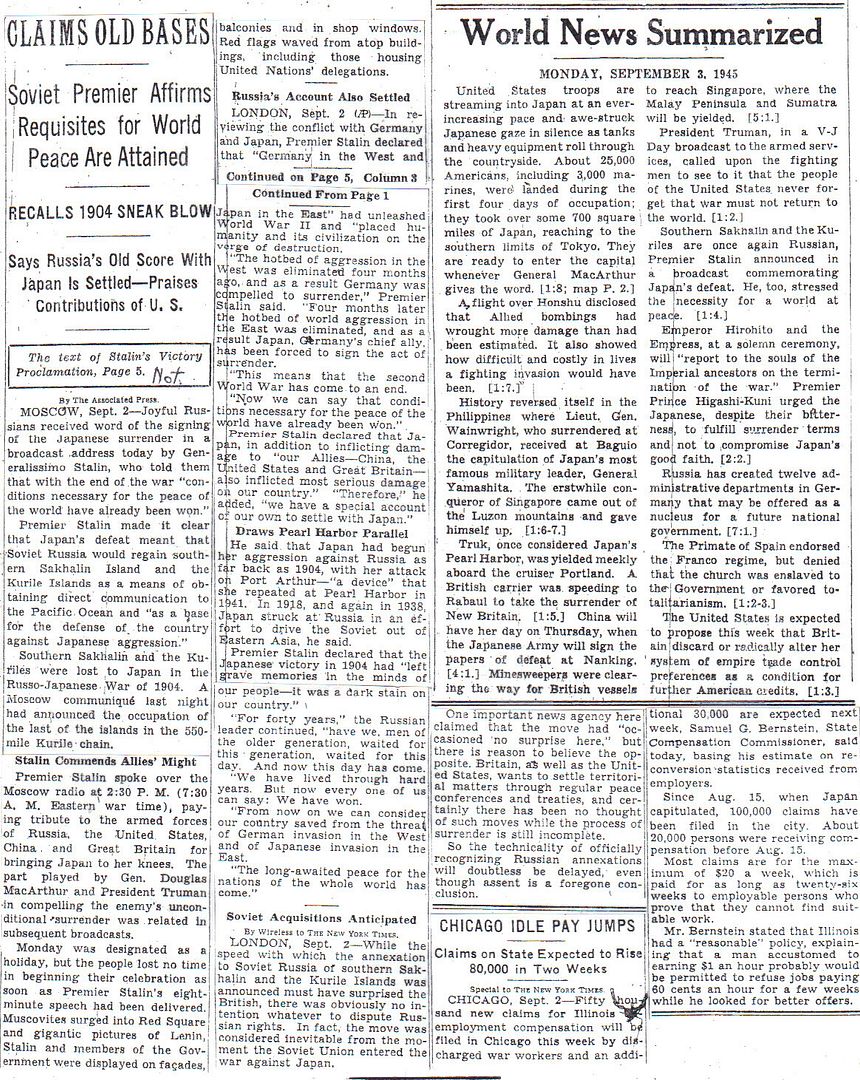
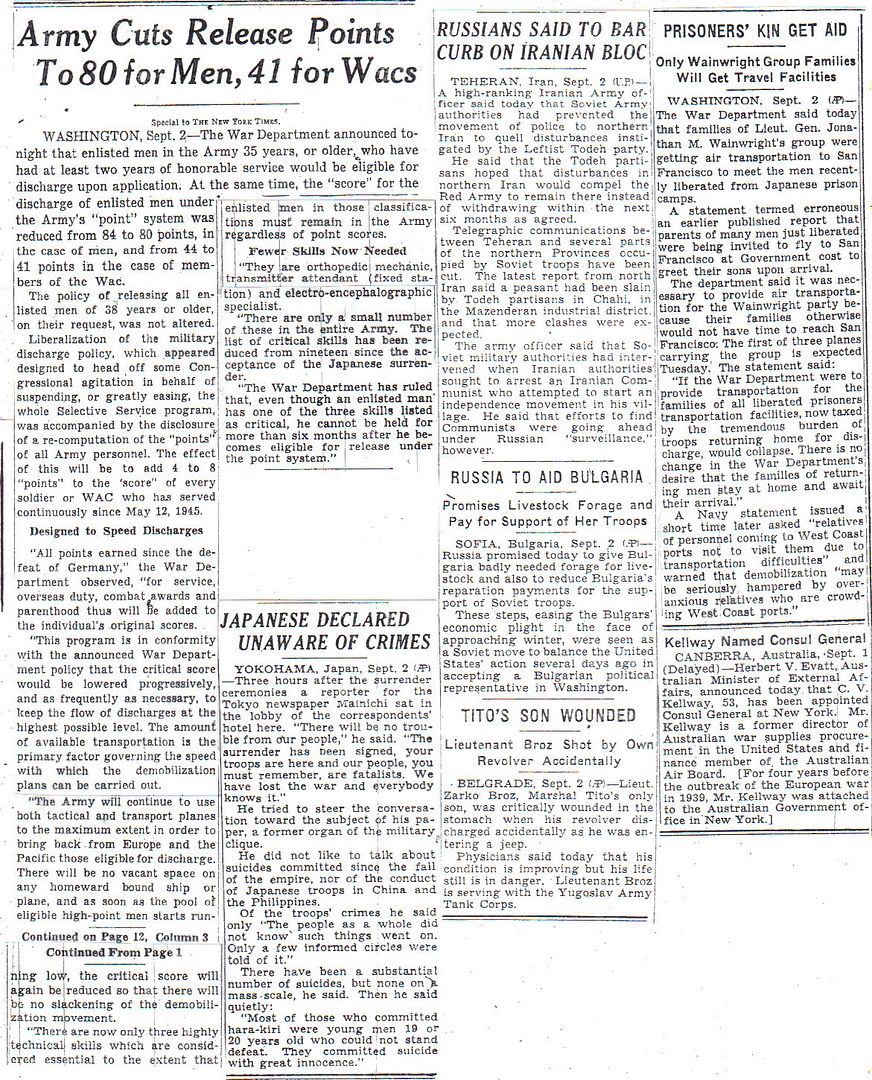
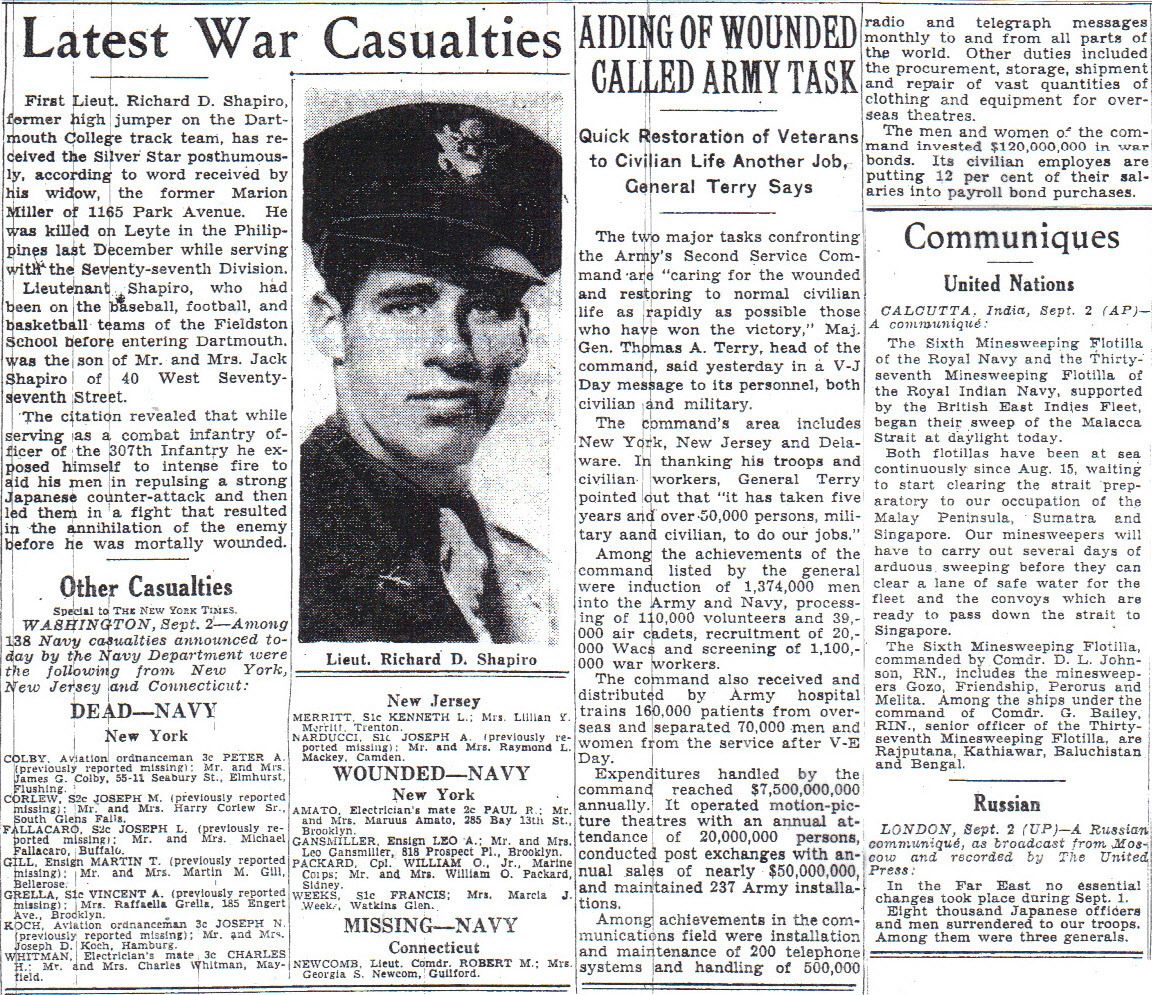
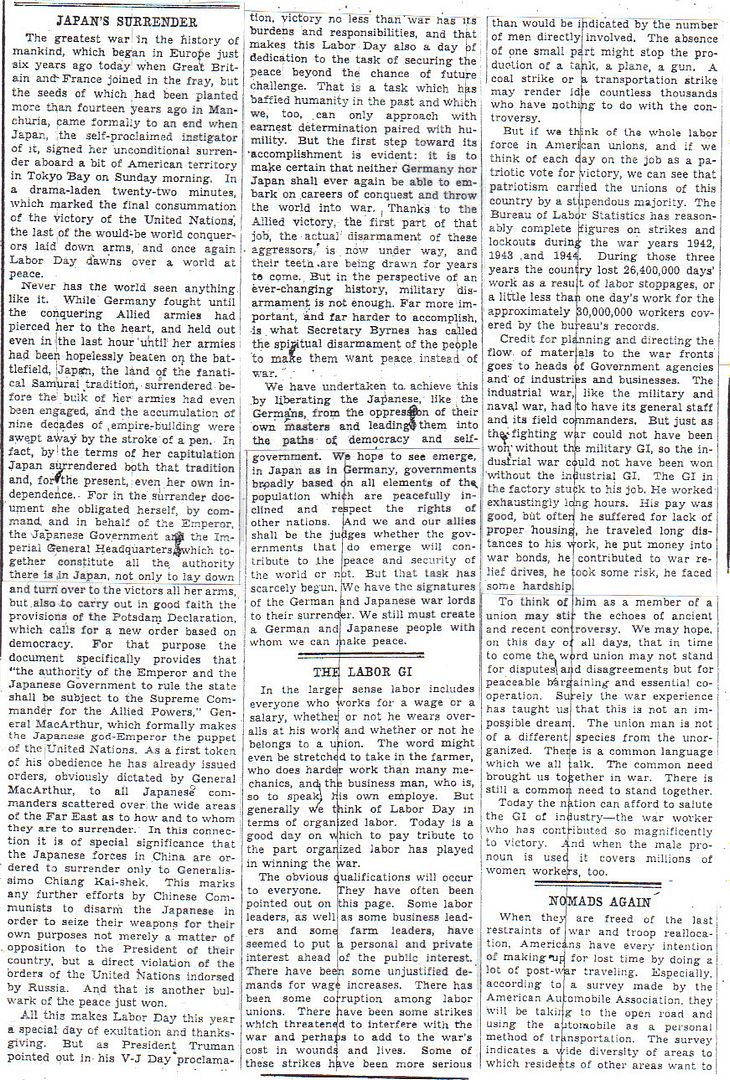
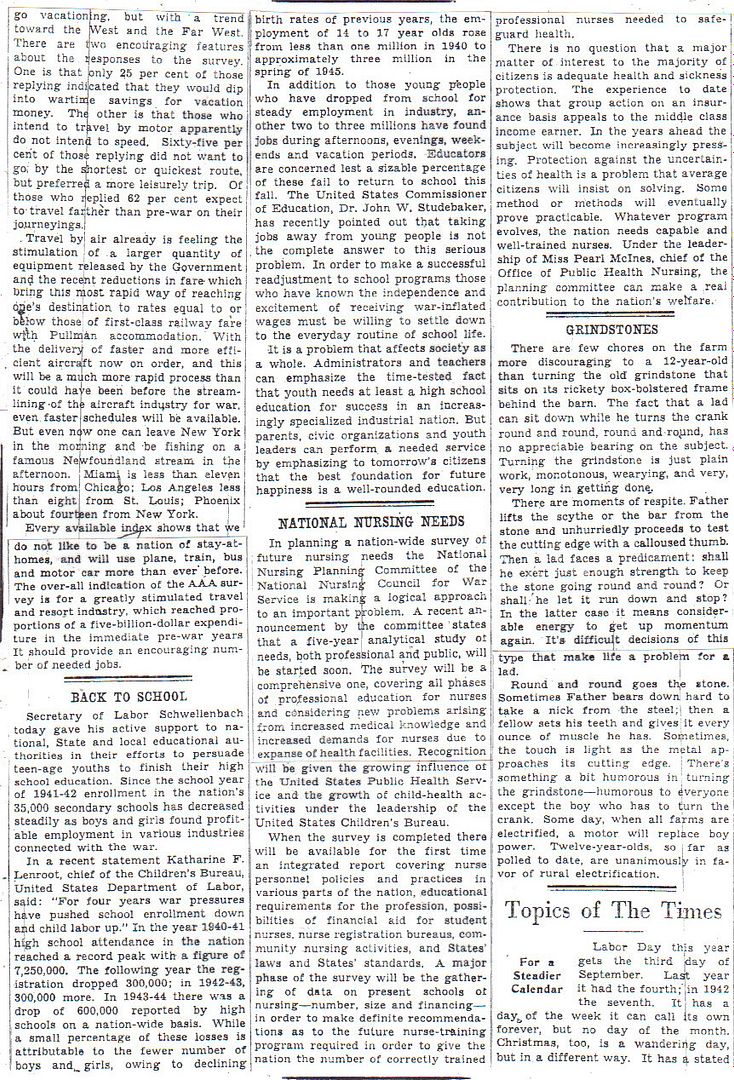
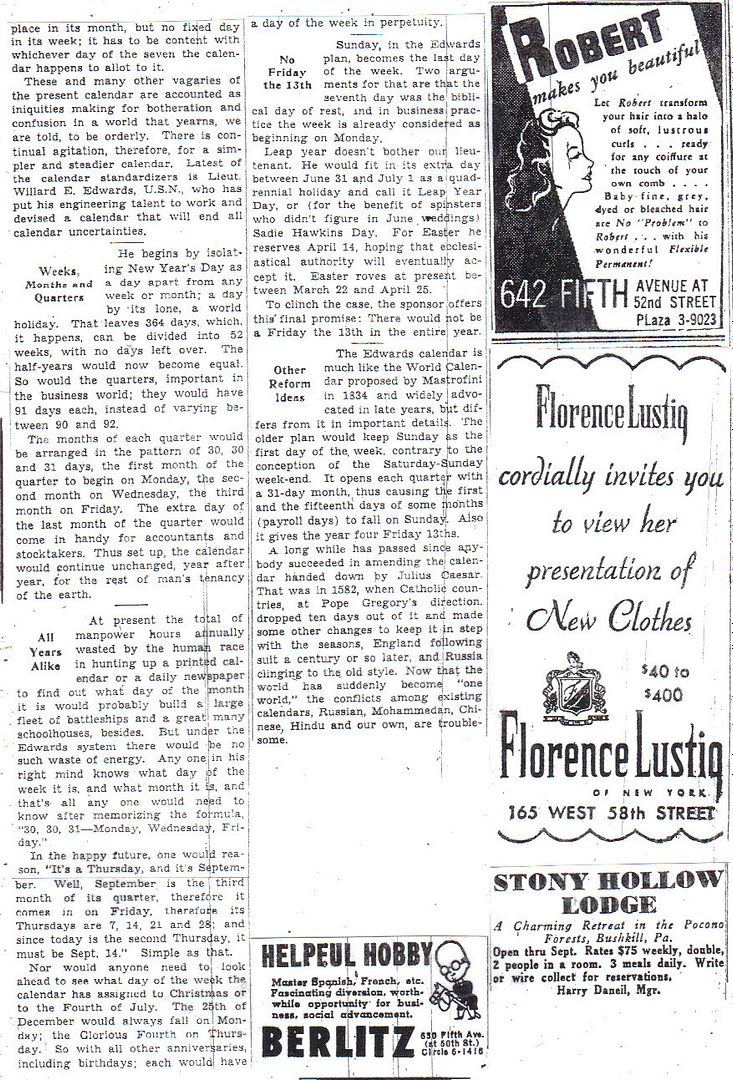
Thanks. I'll keep you in mind.
Congratulations on the completion of this herculian project. I know more than one historian who has used this project as a source as they research their own particular venues. You have provided a significant contribution to the scholarship of the Second World War. Thank you for all the hard work you have done.
What I’ve learned in your class:
Sometimes the good guys get caught unprepared, with their pants down.
When the good guys get caught with their pants down, some very dark days may follow, with many disheartening defeats.
But through the dark days, through the defeats, the good guys can resolutely, courageously fight back, marshaling their intrinsic strength and natural power, and begin to push the bad guys back.
And that at the end of that hard process, unconditional surrender can and will be enforced on the bad guys.
Sounds like the situation we’re faced with inside America today, doesn’t it?
God bless you, sir, and thank you so much for leading this wonderful project, and carrying it through to its glorious conclusion.
May God forgive our national sins, and once again bless us and keep us.
You’re probably aware of this, but South Korea sends a large number of Christian missionaries to the USA. Fullerton, CA, is an important base.
Homer,
Great job!
I wish you would continue though. “70 years ago today” is a daily treat.
As we read these articles it gives us a special perspective on the “frozen peace” as Nixon called it that is our present.
I would like to see you carry on, but I am a selfish bastard.
Thanks again and take care.
Homer, I wanted to add my own thank you for your efforts over the past seven years (!) for this project.
While I haven’t been able to keep up every day due to real life commitments, following these threads has been a one of a kind education in World War II.
Following the events in real time gives a perspective that you can’t get from a book or film.
Watching the situation in Europe collapse in 1938 and 1939 and in Asia from 1940 to 1941 give new insight into the cauases of the war.
Watching the Allies lose repeatedly 1940-1942 gave new perspective on fears of losing, even theught the hard math of America’s production capabilities mean’t that America couldn’t lose unless it gave up.
I also wanted to thank my classmates for making these threads a fantastic learning experience.
Thank you all.
Frank Capra's seven-set movies "Why We Fight", produced during the war, so far as I know make no mention of the Holocaust.
So clearly that was not a prime motivator for our Dads' generation.
But after the fact, its significance has steadily grown, and sometimes been misrepresented.
Hopefully my posts put the facts in their proper contexts.
Thanks again to all for your contributions, Homer especially.
If you ever do something like it again.... well... let me know. :-)
Sorry it took me a couple of days to get around to it, but want to, and am now thanking you for your extraordinary efforts the past several years providing us with the series “70 + years”, which is how my subject line read to my friends.
Myself, and friends across the nation I’ve been pinging to the articles almost since I joined your ping list sincerely appreciate the time, and effort you put of yourself into research, organizing, and presentation. We recognize what you did, and once again thank you for doing it.
Wishing you all the best in the future. RQSR, and Friends.
If there is a way to give you a standing ovation online, I would gladly do it.
This diatribe is crap.
Did you read what you posted?
|
Yeah. And I don’t particularly agree with it.
But there are those who return from war who feel like that. I’ve known a few of them.
I can see how someone could give in to that kind of cynicism after having seen the horrors of war.
There are two ditches on every road. In this case, I think, one ditch is extreme cynicism, and the other is the glorification of a sanitized version of war that pretends that the extreme horrors of war do not exist.
If you have been following this series from the beginning you may be wondering how the story ends for my family members who served. I’ll start with my uncle. To summarize his record, 2nd Lt. L.D. Walker arrived at the 381st Bombardment Group (Heavy), Ridgewell, England, with pilot Billy Chason and the rest of the B-17 crew on which he was the navigator, on December 7, 1943. Lt. Walker is in the front row, kneeling, second from right in the photo.
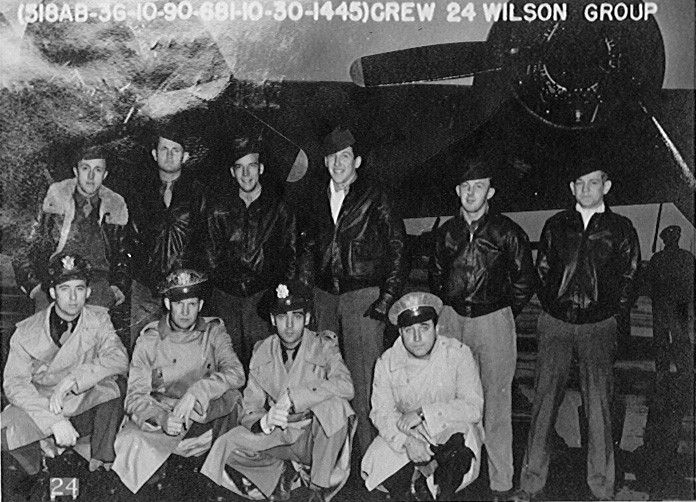
After a period of training they began flying missions near the end of December. On their 4th mission, to Oschersleben Germany, Jan 11 1944, they were shot down. All 10 crewmembers made it out of the aircraft and became POWs at Stalag Luft I, Barth, Germany. They were liberated by the Red Army on May 1, 1945.
After the war Lt. Walker remained in the Army Air Corp. My knowledge of his post-war activity is sketchy. I believe the Army sent him to school for post-grad work in mathematics and physics, after which he worked on missile programs. When the U.S. Air Force became a thing he switched to that branch. He split time between his wife’s family home in the San Joaquin Valley of California and a home in Manhattan Beach, CA, which was near the defense contractors with which he worked. His oldest son told me a few years back that he once went to visit his father at work one day and met all the Mercury astronauts. My uncle also worked on the Atlas program. That about exhausts my knowledge on that subject. Major Walker retired from the Air Force in the nineteen sixties to live at the family home in the San Joaquin Valley. He passed part of his knowledge along to the next generation as a teacher of math and physics (I think) at a local community college. He enjoyed his hobbies of pyrotechnics, winemaking and distilling spirits. I understand he got his first experience in the latter activity during his time as a POW. He passed away too young in 1972.
Now for my father. Delmer W. Deardorff joined the army in early April, 1942 at Monterey, California. He was sent to Camp Roberts, at Paso Robles, for what I take to be combined basic and advanced infantry training. After that he was assigned to an M.P. unit in Oakland for a while. So he didn’t ship out for the Pacific until January 1943. He was assigned as a replacement to Co. F, 2nd Battalion, 128th Infantry Reg., 32nd Infantry Division, which had lost about half its men during the Buna campaign on New Guinea. After another period of training the division went back to New Guinea. My father’s regiment took part in the Saidor and Aitape campaigns on that island. In November, 1944, the 32nd landed on Leyte, Philippine Islands, where they took part in bitter fighting through the end of the year. Sometime before Christmas 1944 F Company was cut off in the mountains of Leyte without supplies. Private Deardorff was declared MIA and his family was notified. He was recovered and hospitalized on Jan 3, 1945. In March 1945 he arrived at Madigan General Hospital at Ft. Lewis Washington. He remained there recovering from his physical ailments until April 1946.
I know little of the time after my father left the service. He returned to his parents’ home in eastern Oregon for a while. He qualified for disability payments. He was physically unable to do the kind of work he did before the war, which was ranching and logging. At the hospital they gave him training in clerical work of some type but, as is typical for PTSD sufferers, he had a hard time with that kind of work environment. He also had problems with addictive behavior. At some point he went to northern California. I am guessing he live with his younger sister and her husband there. That is where he met my mother, a divorced mother of three daughters. They married in 1951 and I debuted in February 1952. Within a couple years the family packed up and returned to Baker, in eastern Oregon. That is the scene of my earliest memories. Few of those involve my father because he still suffered from the tropical disease and trauma he suffered in New Guinea and Leyte Islands, and spent a lot of time in the hospital. He passed away February 25, 1958, a week after my 6th birthday. My mother had had enough of eastern Oregon at that point so we went to southern California for a new start. We lived briefly with my uncle, Major Walker, in his Manhattan Beach home and then my mother took me and the daughter still living at home to begin again on our own. We live in Manhattan Beach until 1966.
Here is a picture of my father in all his glory taken in April 1942, when he left for the army. Then a photo he had taken a few months later.
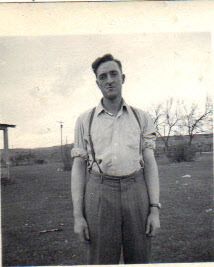
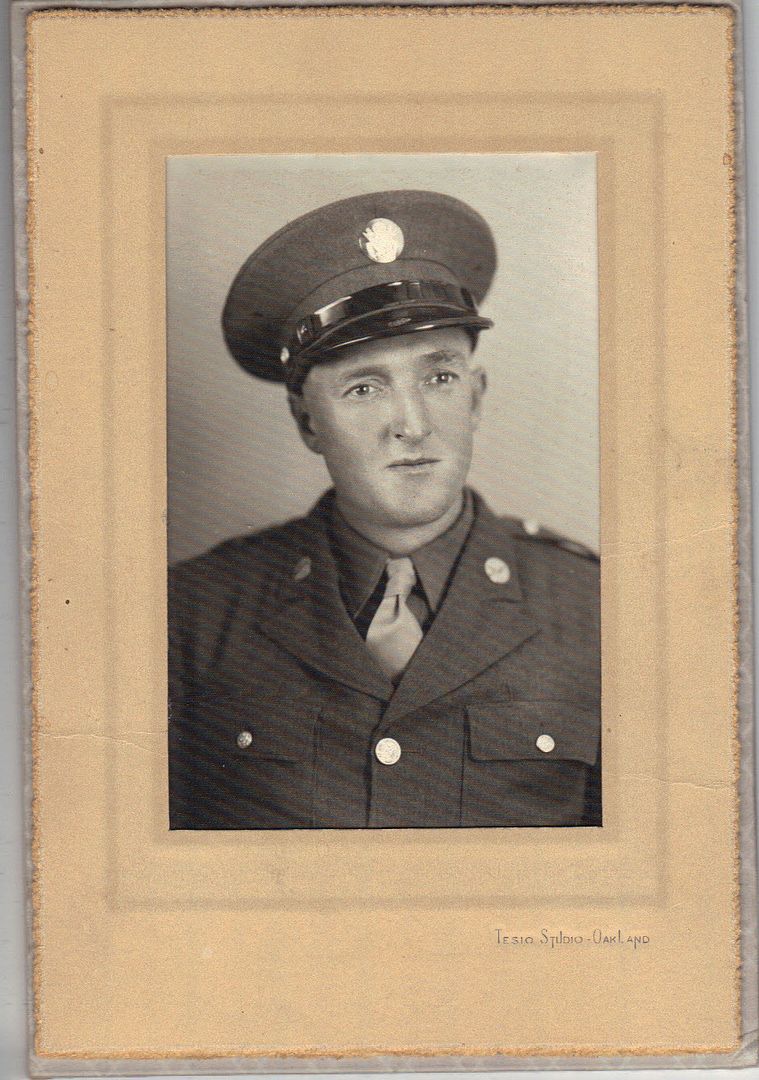
The following is the last photo of him I know of, followed by a picture of his headstone at the cemetery at Durkee, Oregon. I was startled when I first noticed last week that the headstone is inscribed with the wrong Company. I guess after posting all those letters with Co. F in the return address I was more inclined to notice such a thing.
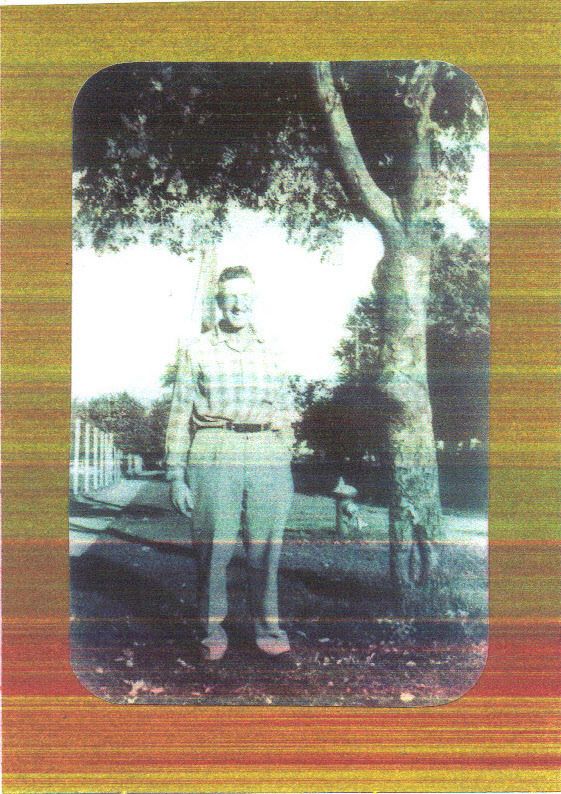
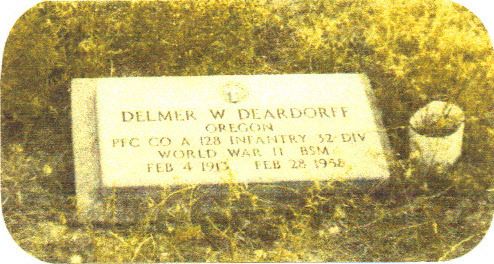
Here is a collection of his insignia and ribbons that survive.
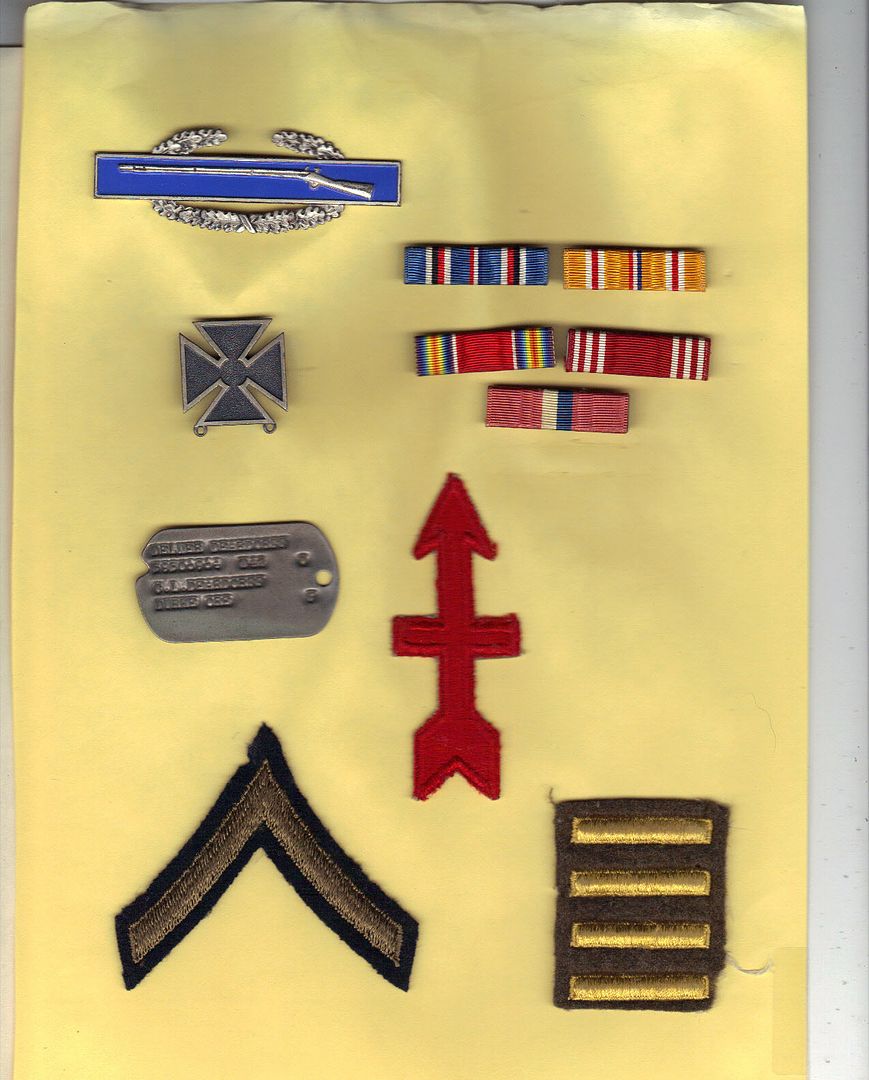
Finally, you may recall that most of the letter my father wrote, or at least the ones I have, were addressed to C.L. Deardorff. Here is a picture of that gentleman with his only grandson, circa 1960.
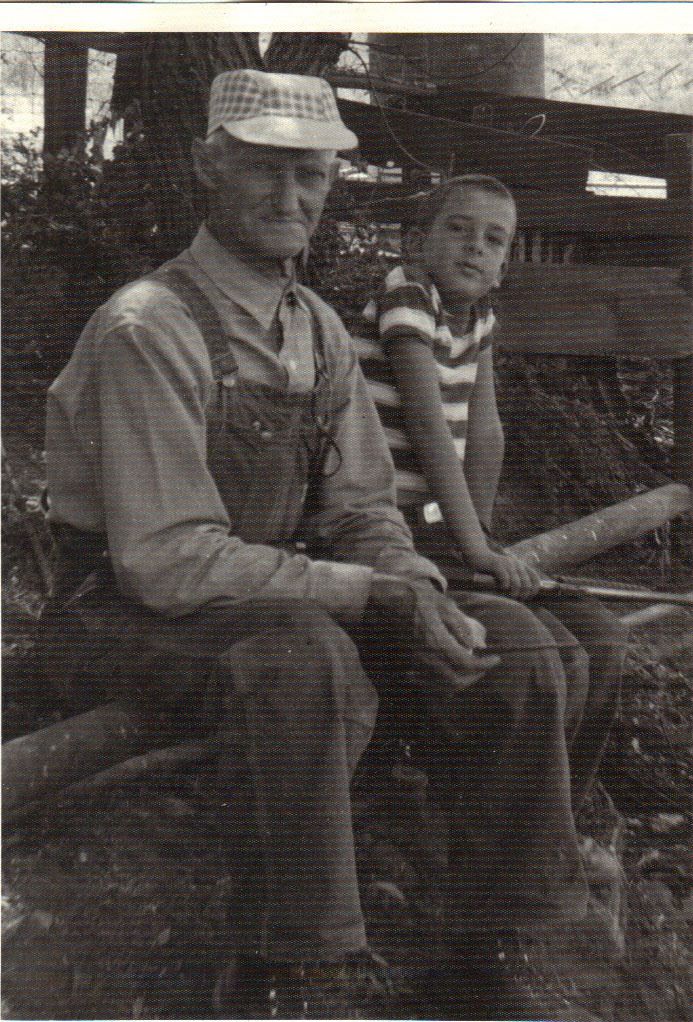
I have some general thoughts on the war I might share, but that will have to wait for another post. If anyone has questions about this project or whatever, ask away.
Here we are 70 years removed from those events. What was so much a part of all of our childhoods is a dimming memory. Many families had gaping holes torn in them by death and disability. Our parents, grandparents, aunts and uncles told us often of those terrible times.
But we endured, and we prospered. That’s quite a legacy for our antecedents. They would be proud.
And that’s why I have faith in the future for our country and way of life.
Thank you for sharing that. It actually answers far more questions than it begs. I’d be happy to read your other observations.
I miss the daily routine of opening up the WWII 70 years thread each morning and don’t like going through withdrawal.
This ping is a “bit of the hair” and has brightened my day!
Thank you for sharing that.
One of my Dad’s best friends was in the Pacific and he died in 1960 at age 41. I don’t remember the circumstances but Dad said he had it rough.
God bless them all.
Thanks for summing that up. It seems that all of us of a certain age have similar stories.
Your father was a victim of the war as much as my uncle killed on a beach on Leyte.
Thank you for doing this. It makes them live just a bit longer. Hopefully, there are those younger than us who can keep some of the stories alive.
Lets hope that our great grandchildren do not have to hear of their grandparents stories.
Disclaimer: Opinions posted on Free Republic are those of the individual posters and do not necessarily represent the opinion of Free Republic or its management. All materials posted herein are protected by copyright law and the exemption for fair use of copyrighted works.